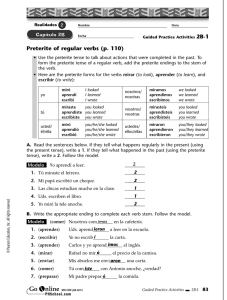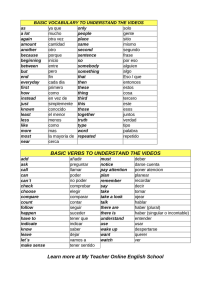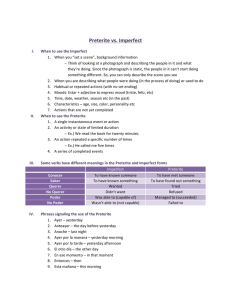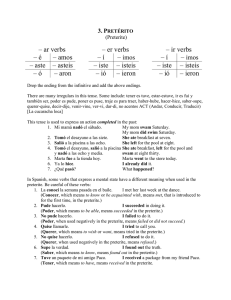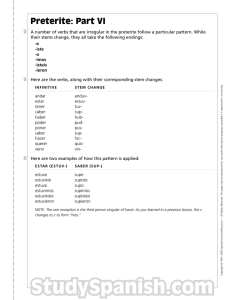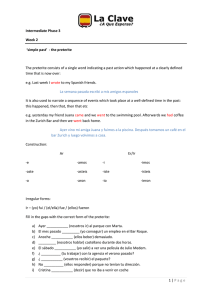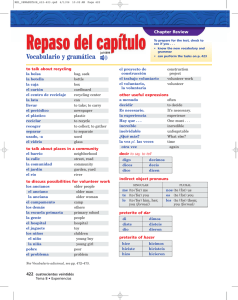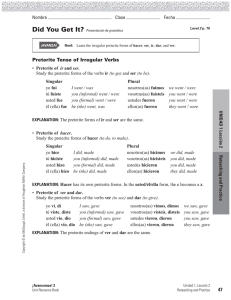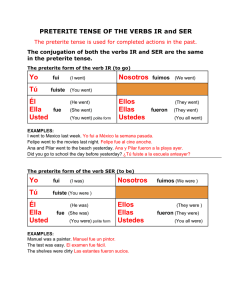Five Verbs with Special Meanings in Preterite
Anuncio
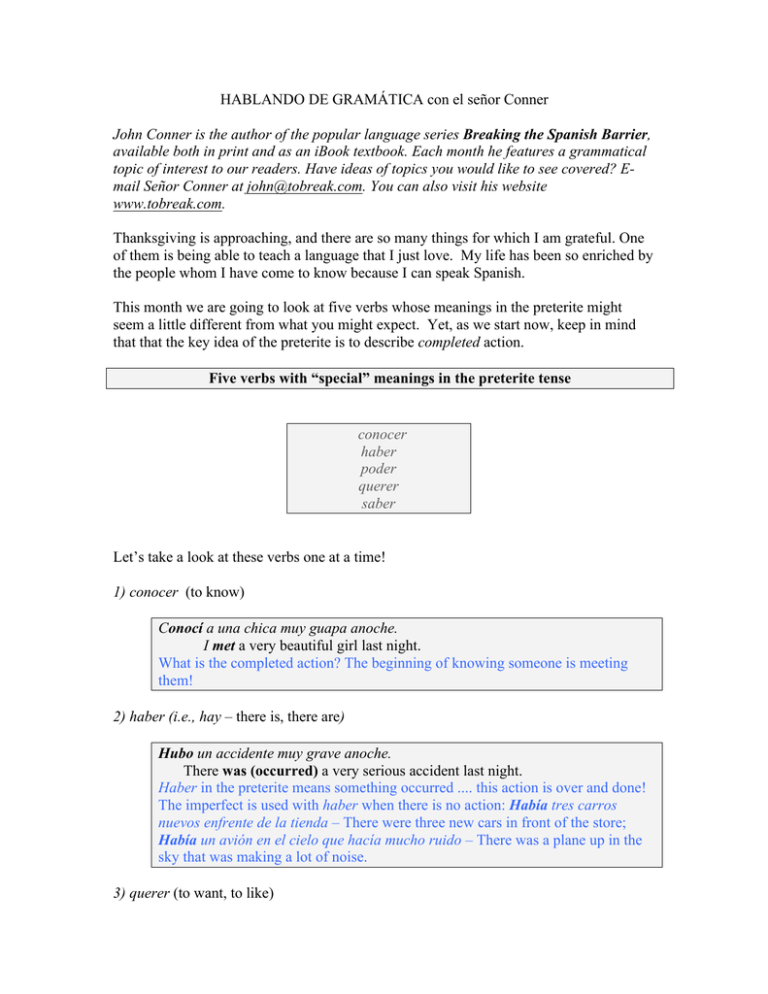
HABLANDO DE GRAMÁTICA con el señor Conner John Conner is the author of the popular language series Breaking the Spanish Barrier, available both in print and as an iBook textbook. Each month he features a grammatical topic of interest to our readers. Have ideas of topics you would like to see covered? Email Señor Conner at [email protected]. You can also visit his website www.tobreak.com. Thanksgiving is approaching, and there are so many things for which I am grateful. One of them is being able to teach a language that I just love. My life has been so enriched by the people whom I have come to know because I can speak Spanish. This month we are going to look at five verbs whose meanings in the preterite might seem a little different from what you might expect. Yet, as we start now, keep in mind that that the key idea of the preterite is to describe completed action. Five verbs with “special” meanings in the preterite tense conocer haber poder querer saber Let’s take a look at these verbs one at a time! 1) conocer (to know) Conocí a una chica muy guapa anoche. I met a very beautiful girl last night. What is the completed action? The beginning of knowing someone is meeting them! 2) haber (i.e., hay – there is, there are) Hubo un accidente muy grave anoche. There was (occurred) a very serious accident last night. Haber in the preterite means something occurred .... this action is over and done! The imperfect is used with haber when there is no action: Había tres carros nuevos enfrente de la tienda – There were three new cars in front of the store; Había un avión en el cielo que hacía mucho ruido – There was a plane up in the sky that was making a lot of noise. 3) querer (to want, to like) La chica quiso llamarme anoche. The girl tried to call me last night. In this sentence, the preterite expresses that the girl made the attempt to call. We don’t know if she was successful! Mi hijo no quiso contestar mis preguntas. My son refused to answer my questions. (The completed action here is the refusal to do something). 4) poder (to be able to) Pude entrar a la casa sin llave. I tried (and was able) to enter the house without a key. No pude entrar a la casa sin llave. I tried (but was not able) to enter the house without a key. In both of these sentences, the preterite gives the idea of making a specific attempt: in the first sentence, I was successful, but in the second, I wasn’t! 5) saber (to know) Mi madre supo que yo llegué tarde a casa anoche. My mom found out that I arrived home late last night. The beginning of knowing something is finding something out. That explains the preterite here. Unfortunately, my mom DID find out. PRUEBA DE REPASO In the first five sentences, conjugate the infinitive in parentheses into the correct form of the preterite. 1) Aunque Uds. no lo van a creer, el año pasado yo ___________________ a Tony Bennett, el famoso cantante, en Nueva York. (conocer) 2) Anoche ___________________ una pelea entre unos chicos de mi barrio y otros que viven en el pueblo de al lado. (haber) 3) Quería saber lo que ocurrió anoche, pero los chicas no ___________________ contestar mis preguntas. (querer) 4) Mi hermana intentó conseguir cita con el médico hoy, pero no ___________________ hoy. (poder) 5) Anoche yo ___________________ que no podría ir de vacaciones con mi amiga. (saber) Now translate those same sentences into English, paying special attention to what you learned about these verbs in the preterite tenses. 1) 2) 3) 4) 5) Answers 1) conocí 2) hubo 3) quisieron 4) pudo 5) supe Translations: 1) Even though you’re not going to believe it, last year I met Tony Bennett, the famous singer, in New York. 2) Last night there was a fight among between some kids from my neighborhood and others who live in the nearby town. 3) I wanted to find out what happened last night, but the girls refused to answer my questions. 4) My sister wanted to get an appointment with the doctor today, but she wasn’t able able to get it. 5) Last night I found out that I would not be able to go on vacation with my friend.
